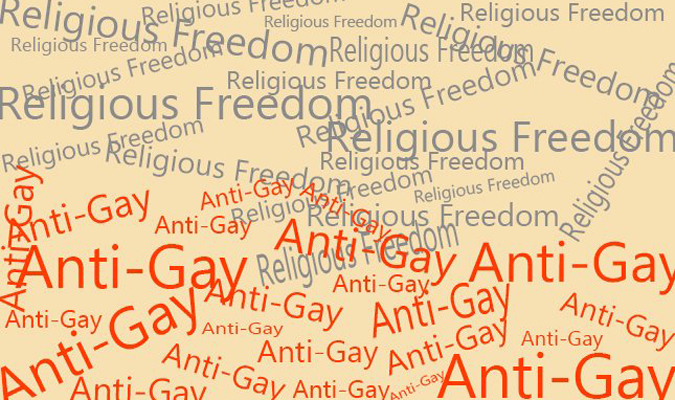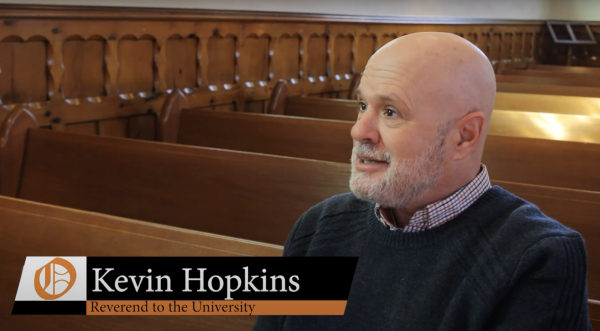BU community reacts to Kansas HB 2453
Despite every Douglas County representative voting against it, the Kansas House of Representatives passed House Bill 2453 on Feb. 12. The text of the bill says it is an act “concerning religious freedoms with respect to marriage.”
The bill was approved by the Republican-led house 72-49, with chief supporters saying the bill’s intention was to protect “sincerely held religious beliefs of the individual or religious entity regarding sex or gender.”
Kansas does not recognize same-sex unions, but many religious groups have grown wary after federal judges in several states, including Utah, Oklahoma and Kentucky, have voided part or all of their bans on same-sex unions.
The proposal would block lawsuits or government sanctions against individuals or religious entities that refused to provide “services, accommodations, advantages, facilities, goods, or privileges … related to any marriage, domestic partnership, civil union or similar arrangement.”
Minister to the University Ira DeSpain said he was saddened when hearing about the bill and that religious beliefs were the crux of the argument.
“I think the intent of faith is to be inclusive of people,” DeSpain said. “I yearn for the day in which every citizen in Kansas can have their rights protected and can expect protection under the law. Beyond that I hope one day Kansas joins the currently 17 states that recognize the legality of same-sex unions.”
DeSpain, along with other opponents of the bill, raised concerns over what this law could potentially allow.
“So, what happens if a gay person is getting beat up? Is a cop going to say, ‘Oh I don’t like gay people,’ and let that beating occur?” DeSpain said. “If that law allows that, then that just makes the whole thing ludicrous to me.”
DeSpain is not the only one concerned about the language in the bill. Kansas Senate President Susan Wagle issued a statement saying the bill did not have the support of a majority of Republicans in the Senate, and therefore did not stand a chance of passing. Wagle did, however, say there might be a way to negotiate on the bill and find common ground.
Chief advocates of the bill said it was meant to only apply to marriage-related functions, such as a flower or bakery shop that was asked to provide service for a same-sex union. In December, a Colorado judge found a baker guilty of discrimination when he refused to bake a wedding cake for a gay couple because he thought homosexuality was a sin.
Kara Cole, owner of the Cranberry Market flower shop in Baldwin City, said she could not see a situation in which she would refuse service to anyone.
“To be honest, I believe homosexuality is against biblical teachings,” Cole said. “But to judge someone, I wouldn’t want to do that. If I was refused service, I would feel judged, hurt and offended and that’s probably something that I wouldn’t want to do to another person.”
Many have been surprised at the outcry the House passage of this bill has received. A Facebook page titled “Stop Kansas House Bill 2453” already has more than 55,000 followers.
In an interview with the Kansas City Star, a spokesperson for the American Civil Liberties Union said if the bill passed, Kansas would be the first state to legalize discrimination on the part of the employee, including government employees.
Tamara Slankard, assistant professor of English, is worried about the message this bill sends.
“I think it’s disheartening that when clearly so many places in the country, even other conservative places, are saying that they’re ready to move forward, that we are moving backward,” Slankard said.
Slankard also said the way the bill is written could lead to an allowance of discrimination against more people than just the gay community.
“If I’m reading it correctly, it’s not even limiting it to gay marriage,” Slankard said. “It says that anyone in a relationship that I don’t believe in, I don’t have to recognize. If I’m a racist person do I get to decide a marriage between a black person and a white person is illegal because I don’t believe in that? There’s a reason why we had a civil rights movement and it seems like it’s not over.”







